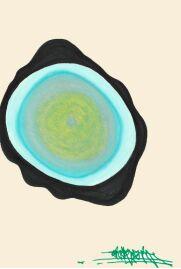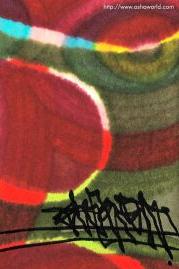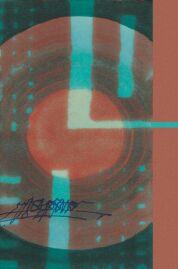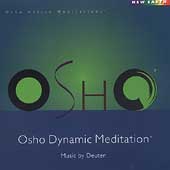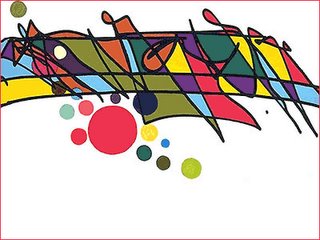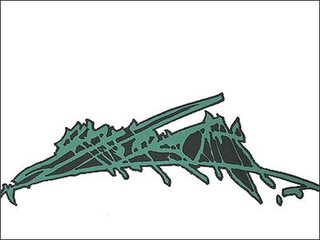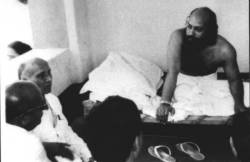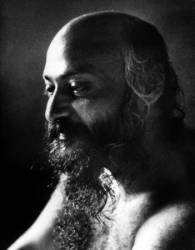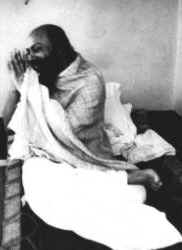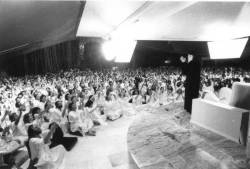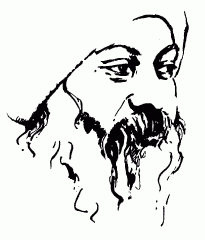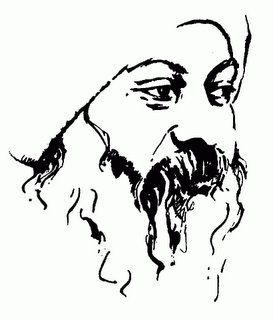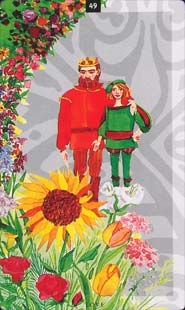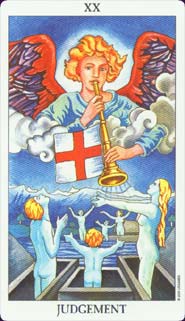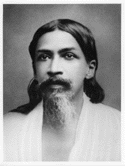What I miss most in life? Well, the list is endless. However, the first thing that comes to my mind is Kalubhai's chai. I wish I could fly to Baroda and sip his tea at this very moment. The endless chatter with lazy friends at Kalubhai's larri is what I miss most. I also miss my friends who have all the time in the world and are never in any kind of hurry. I just love ( platonic, mind you) them.
December 14, 2005
December 11, 2005
SCIENCE AND RELIGION
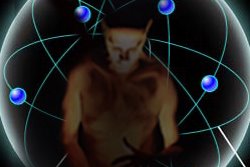
Osho says, “If Einstein had also been a Buddha, there would have been atomic energy but no atom bombs, and atomic energy would have become a blessing -- the greatest blessing ever. The earth would have become a paradise. But Albert Einstein is not a Buddha; unfortunately he knows nothing of meditation -- a great mind, but the master is missing; a great mechanism, a great airplane without the pilot.”
“I would like you to be enriched by Newton, Edison, Eddington, Rutherford, Einstein; and I would like you also to be enriched by Buddha, Krishna, Christ, Mohammed, so that you can become rich in both the dimensions -- the outer and the inner.”
Read on……
“THE VERY EFFORT TO RECONCILE THE POLAR opposites is wrong -- you will never succeed in it. It is like trying to reconcile day and night, it is like trying to reconcile life and death. You need not reconcile them; you have only to see that they ARE reconciled. Day and night are moving perfectly in rhythm; life and death are like two wings of existence.
Once you see that the polar opposites can't exist separately, once you have seen that reconciliation is not needed at all, that they are already reconciled, that awareness will help you to move from one pole to another without any problem. They are totally different phenomena -- polar opposites, but all polar opposites are also complementaries.
Science is concentration: it is mind, it is effort.
Meditation or religion is a totally different world: it is relaxation, it is let-go -- it is not concentration at all. It is not one-pointedness, it is no-pointedness. So how can you reconcile them? How do you reconcile work and rest? But you work hard in the day, and at night the rest comes of its own accord. You have earned it; your hard work brings rest.
The East has lived religiously -- that is one pole -- and because IT has lived religiously it has not been able to produce science. The West has lived scientifically, and because of its science it has lost track of religion. Now for the first time, the East is no more East and the West is no more West. The earth is becoming one: the earth is becoming one. global village. This is the time when the reconciliation can be seen, can be understood.
Man is entering into a new phase; a new consciousness is to dawn. For at least ten thousand years, as far as consciousness is concerned, nothing new has happened. There have been Buddhas and there have been Albert Einsteins, but we are still waiting for a Buddha who is also an Albert Einstein or an Albert Einstein who is also a Buddha. The day is coming closer and closer. Albert Einstein in his last days was very much interested in meditation, in religion. His last days were full of wonder. He said in his old age, "I used to think when I was young that sooner or later all the mysteries of existence would be solved, and I worked hard. But now I can say that the more we know, the more existence turns out to be mysterious. The more we know, the less we know and the more we become aware of the vastness...."
December 10, 2005
The Blue Bird

I am the bird of God in His blue;
Divinely high and clear
I sing the notes of the sweet and the true
For the god's and the seraph's ear.
I rise like a fire from the mortal's earth
Into a griefless sky
And drop in the suffering soil of his birth
Fire-seeds of ecstasy.
My pinions soar beyond Time and Space
Into unfading Light;
I bring the bliss of the Eternal's face
And the boon of the Spirit's sight.
I measure the worlds with my ruby eyes;
I have perched on Wisdom's tree
Thronged with the blossoms of Paradise
By the streams of Eternity.
Nothing is hid from my burning heart;
My mind is shoreless and still;
My song is rapture's mystic art,
My flight immortal will.
11-11-1935
- Sri Aurobindo
The Haiku Thread
What is Haiku?
Haiku is one of the most important form of traditional japanese poetry. Haiku is, today, a 17-syllable verse form consisting of three metrical units of 5, 7, and 5 syllables. Since early days, there has been confusion between the three related terms Haiku, Hokku and Haikai. The term hokku literally means "starting verse", and was the first starting link of a much longer chain of verses known as haika. Because the hokku set the tone for the rest of the poetic chain, it enjoyed a privileged position in haikai poetry, and it was not uncommon for a poet to compose a hokku by itself without following up with the rest of the chain.
Largely through the efforts of Masaoka Shiki, this independence was formally established in the 1890s through the creation of the term haiku. This new form of poetry was to be written, read and understood as an independent poem, complete in itself, rather than part of a longer chain.
Strictly speaking, then, the history of haiku begins only in the last years of the 19th century. The famous verses of such Edo-period (1600-1868) masters as Basho, Yosa Buson, and Kobayashi Issa are properly referred to as hokku and must be placed in the perspective of the history of haikai even though they are now generally read as independent haiku. In HAIKU for PEOPLE, both terms will be treated equally! The distinction between hokku and haiku can be handled
by using the terms Classical Haiku and Modern Haiku.
Modern Haiku.
The history of the modern haiku dates from Masaoka Shiki's reform, begun in 1892, which established haiku as a new independent poetic form. Shiki's reform did not change two traditional elements of haiku: the division of 17 syllables into three groups of 5, 7, and 5 syllables and the inclusion of a seasonal theme.
Kawahigashi Hekigoto carried Shiki's reform further with two proposals:
1. Haiku would be truer to reality if there were no center of interest in it.
2. The importance of the poet's first impression, just as it was, of subjects taken
from daily life, and of local colour to create freshness.
How to write Haiku ?
In japanese, the rules for how to write Haiku are clear, and will not be discussed here. In foreign languages, there exist NO consensus in how to write Haiku-poems. Anyway, let's take a look at the basic knowledge:
What to write about?
Haiku-poems can describe almost anything, but you seldom find themes which are too complicated for normal PEOPLE's recognition and understanding. Some of the most thrilling Haiku-poems describe daily situations in a way that gives the reader a brand new experience of a well-known situation.
The metrical pattern of Haiku.
Haiku-poems consist of respectively 5, 7 and 5 syllables in three units. In japanese, this convention is a must, but in english, which has variation in the length of syllables, this can sometimes be difficult.
The technique of cutting.
The cutting divides the Haiku into two parts, with a certain imaginative distance between the two sections, but the two sections must remain, to a degree, independent of each other. Both sections must enrich the understanding of the other.
To make this cutting in english, either the first or the second line ends normally with a colon, long dash or ellipsis.
The seasonal theme.
Each Haiku must contain a kigo, a season word, which indicate in which season the Haiku is set. For example, cherry blossoms indicate spring, snow indicate winter, and mosquitoes indicate summer, but the season word isn't always that obvious.
Please notice that Haiku-poems are written under different rules and in many languages. For translated Haiku-poems, the translator must decide whether he should obey the rules strictly, or if he should present the exact essence of the Haiku. For Haiku-poems originally written in english, the poet should be more careful. These are the difficulties, and the pleasure of Haiku.
Haiku's From The Masters :
Akutagawa, Ryunosuke. (1892-1927)
Without flowing wine
How to enjoy lovely
Cherry blossoms?
Basho, Matsuo. (1644-1694).
No one travels
Along this way but I,
This autumn evening.
Issa. (1762-1826).
Right at my feet -
and when did you get here,
snail?
Murakami, Kijo. (1865-1938).
The moment two bubbles
are united, they both vanish.
A lotus blooms.
Post your own haiku below here: Comments.
Haiku is one of the most important form of traditional japanese poetry. Haiku is, today, a 17-syllable verse form consisting of three metrical units of 5, 7, and 5 syllables. Since early days, there has been confusion between the three related terms Haiku, Hokku and Haikai. The term hokku literally means "starting verse", and was the first starting link of a much longer chain of verses known as haika. Because the hokku set the tone for the rest of the poetic chain, it enjoyed a privileged position in haikai poetry, and it was not uncommon for a poet to compose a hokku by itself without following up with the rest of the chain.
Largely through the efforts of Masaoka Shiki, this independence was formally established in the 1890s through the creation of the term haiku. This new form of poetry was to be written, read and understood as an independent poem, complete in itself, rather than part of a longer chain.
Strictly speaking, then, the history of haiku begins only in the last years of the 19th century. The famous verses of such Edo-period (1600-1868) masters as Basho, Yosa Buson, and Kobayashi Issa are properly referred to as hokku and must be placed in the perspective of the history of haikai even though they are now generally read as independent haiku. In HAIKU for PEOPLE, both terms will be treated equally! The distinction between hokku and haiku can be handled
by using the terms Classical Haiku and Modern Haiku.
Modern Haiku.
The history of the modern haiku dates from Masaoka Shiki's reform, begun in 1892, which established haiku as a new independent poetic form. Shiki's reform did not change two traditional elements of haiku: the division of 17 syllables into three groups of 5, 7, and 5 syllables and the inclusion of a seasonal theme.
Kawahigashi Hekigoto carried Shiki's reform further with two proposals:
1. Haiku would be truer to reality if there were no center of interest in it.
2. The importance of the poet's first impression, just as it was, of subjects taken
from daily life, and of local colour to create freshness.
How to write Haiku ?
In japanese, the rules for how to write Haiku are clear, and will not be discussed here. In foreign languages, there exist NO consensus in how to write Haiku-poems. Anyway, let's take a look at the basic knowledge:
What to write about?
Haiku-poems can describe almost anything, but you seldom find themes which are too complicated for normal PEOPLE's recognition and understanding. Some of the most thrilling Haiku-poems describe daily situations in a way that gives the reader a brand new experience of a well-known situation.
The metrical pattern of Haiku.
Haiku-poems consist of respectively 5, 7 and 5 syllables in three units. In japanese, this convention is a must, but in english, which has variation in the length of syllables, this can sometimes be difficult.
The technique of cutting.
The cutting divides the Haiku into two parts, with a certain imaginative distance between the two sections, but the two sections must remain, to a degree, independent of each other. Both sections must enrich the understanding of the other.
To make this cutting in english, either the first or the second line ends normally with a colon, long dash or ellipsis.
The seasonal theme.
Each Haiku must contain a kigo, a season word, which indicate in which season the Haiku is set. For example, cherry blossoms indicate spring, snow indicate winter, and mosquitoes indicate summer, but the season word isn't always that obvious.
Please notice that Haiku-poems are written under different rules and in many languages. For translated Haiku-poems, the translator must decide whether he should obey the rules strictly, or if he should present the exact essence of the Haiku. For Haiku-poems originally written in english, the poet should be more careful. These are the difficulties, and the pleasure of Haiku.
Haiku's From The Masters :
Akutagawa, Ryunosuke. (1892-1927)
Without flowing wine
How to enjoy lovely
Cherry blossoms?
Basho, Matsuo. (1644-1694).
No one travels
Along this way but I,
This autumn evening.
Issa. (1762-1826).
Right at my feet -
and when did you get here,
snail?
Murakami, Kijo. (1865-1938).
The moment two bubbles
are united, they both vanish.
A lotus blooms.
Post your own haiku below here: Comments.
December 09, 2005
Salaam Namaste
I always wonder why have I come on this earth? What's the purpose of my life? Am I an aimless wonderer or something else? I don't have answers for these questions. But, I know human life is very precious. I am sure one day I will come to know about the true purpose of my life. Till than it's salaam namaste.
OSHO ON TERRORISM
BELOVED OSHO, I'VE HEARD THAT IN EUROPE THE THREAT OF TERRORISM IS STRIKING FEAR IN EVERYONE. AIRPLANES ARE DELAYED BY EXTRAORDINARY SECURITY MEASURES, MANY OF THE SEATS ARE EMPTY, AND SOME AIRPORTS ARE CLOSING. PEOPLE ARE EVEN THINKING TWICE ABOUT GOING OUT IN THE EVENING. AND ALL THIS IS MORE PREVALENT SINCE THE RECENT BOMBING OF IRAQ. IS THE RISE OF TERRORISM OVER THE LAST DECADE IN SOME WAY SYMBOLIC OF WHAT IS HAPPENING TO SOCIETY IN GENERAL?
Everything is deeply related with everything else that happens.
The event of terrorism is certainly related with what is happening in the society.
The society is falling apart.
Its old order, discipline, morality, religion, everything has been found to be wrongly based.
It has lost its power over people's conscience.
Terrorism simply symbolizes that to destroy human beings does not matter, that there is nothing in human beings which is indestructible, that it is all matter -- and you cannot kill matter, you can only change its form.
Once man is taken to be only a combination of matter, and no place is given for a spiritual being inside him, then to kill becomes just play.
The nations are irrelevant because of nuclear weapons.
If the whole world can be destroyed together within minutes the alternative can only be that the whole world should be together.
Now it cannot remain divided; its division is dangerous, because division can become war any moment.
The division cannot be tolerated.
Only one war is enough to destroy everything, and there is not much time left for man to understand that we should create a world where the very possibility of war does not exist.
»OSHO«
Beyond Psychology
Chapter #18
Chapter title: Terrorism is in your unconscious
Uruguay
BUDDHA SAYS
Buddha says the greatest joy in life is freedom: freedom from all prejudices, freedom from all scriptures, freedom from all concepts and ideologies, freedom from all desires, freedom from all possessiveness and jealousy, freedom from all hatred, anger, rage, lust... in short, freedom from everything, so that you are just a pure consciousness, unbounded, unlimited. That is the greatest joy, and it is possible -- it is within everybody's grasp. You just have to grope for it a little. The groping will be in the dark, but it is not far away. If you try, if you make an effort, you are bound to find it. It is your birthright.
A PIECE OF STRING
"Dorothy, your boyfriend, Mulla Nasrudin, seems very bashful," said Mama to her daughter.
"Bashful!" echoed the daughter, "bashful is no name for it."
"Why don't you encourage him a little more? Some men have to be taught how to do their courting. He's a good catch."
"Encourage him!" said the daughter, "he cannot take the most palpable hint. Why, only last night when I sat all alone on the sofa, he perched up in a chair as far away as he could get. I asked him if he didn't think it strange that a man's arm and a woman's waist seemed always to be the same length, and what do you think he did?"
"Why, just what any sensible man would have done -- tried it."
"NO," said the daughter. "HE ASKED ME IF I COULD FIND A PIECE OF STRING SO WE COULD MEASURE AND SEE IF IT WAS SO."
LAUGHTER IS MY MESSAGE
Existence is hilarious!! If you just have eyes to see the hilarious points you will be surprised. In life here is no place to be serious. Everybody is slipping on banana peels - you just need an insight to see.
One just needs a little alertness to see and find out: Life is really a great cosmic laughter. Those who become silent and happy join in the laughter.
NO HURRY NO WORRY
In his book the story of philosophy will durant wrote:
No man who is in hurry is quite civilized.
It took man 10,000 years to develope culture and civilization and they did it very slowly and smartly. no need to hurry no need to go anywhere. just be here and now and everything happens automatically, it's a miracle.
"seating silently the grass grows by itself"
growing naturally, laziness is divine.
NATURE'S WAY
NAPS ARE NATURE'S WAY OF REMINDING YOU THAT LIFE IS NICE -- LIKE A BEAUTIFUL ,SOFTLY SWINGING HAMMOCK STRUNG BETWEEN BIRTH AND INFINITY
Subscribe to:
Posts (Atom)










